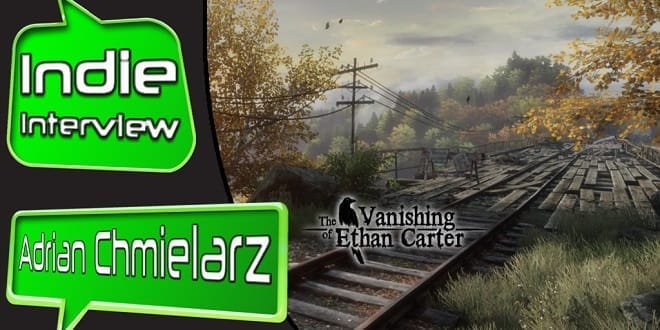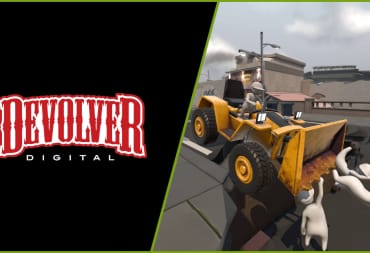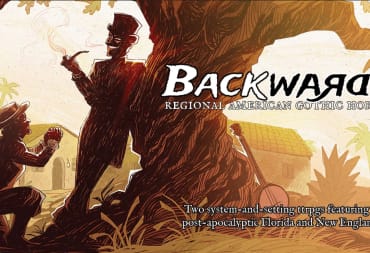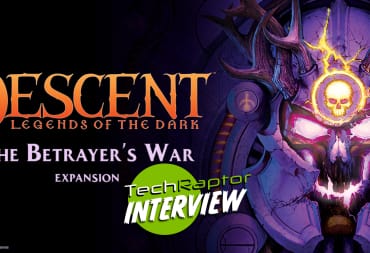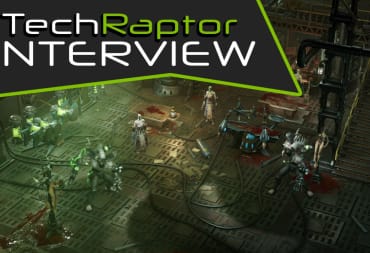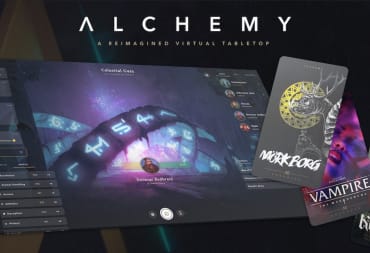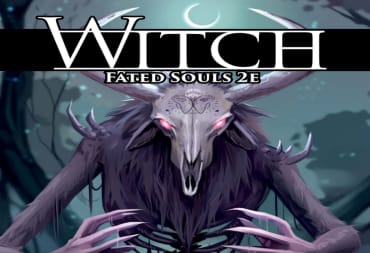TechRaptor recently reached out to Adrian Chmielarz, the Co-owner/Creative Director at The Astronauts, developers of the TechRaptor approved The Vanishing of Ethan Carter, who was gracious enough to spend time answering our questions. In the interview below we asked Adrian about game development, traditional gaming media and #GamerGate, as well as other gaming industry related topics.
TR: Please tell us about yourself, your experience in the video games industry and your current company The Astronauts.
Adrian: I’ve been the creative director and co-owner of People Can Fly, mostly known for Painkiller and Bulletstorm. Along with two friends who were the leads at and co-owners of People Can Fly we went independent and founded The Astronauts, and we made The Vanishing of Ethan Carter. Currently our studio is eight people strong.
My first commercial game was released in 1993, so I’m making games for quite some time now. My favorite part is designing and directing projects, but I’m also taking care of business and marketing. Hopefully, with the growth of the studio, one day I’ll be able to pass those particular responsibilities over to someone else.
TR: What prompted you to form The Astronauts and become an independent developer?
Adrian: Freedom. It’s as simple as that. Sure, that freedom comes at a cost: you risk your own money, and you no longer can make big games. It’s still worth it, though, at least for us. I loved making AAA, but not having to deal with internal politics and just focusing on creation feels great. I guess me and my partners are just wired in a way that makes us do our best work when we don’t have any other bosses but the gaming public.
Don’t get me wrong, it’s not like the world of AAA is all bad, on the contrary, I think the AAA devs have more freedom than some people believe. But let’s not pretend we would ever be able to make a game like The Vanishing of Ethan Carter if we didn’t go independent.
TR: Now that The Vanishing of Ethan Carter has been released on PC are all of your efforts focused on the upcoming PS4 release or do you have anything brand new in the works?
Adrian: For now 99% of the studio’s power is directed towards the PS4 version of Ethan. The remaining 1% we spend on thinking about the new project. It’s going to be quite different from Ethan, but I guess that can be expected from guys who worked on a game like Ethan after a game like Bulletstorm.
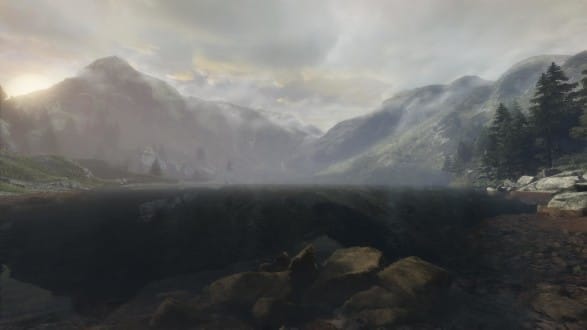
TR: As an independent developer, how reliant are you on traditional games media for coverage of your games?
Adrian: Any developer, independent or not, is interested in any channel, traditional or not. Anything that helps expose the game to the public and keeps the game on their radar. The problem for independent developers is to be able to understand the real influence of a channel. We usually don’t have marketing departments full of experienced, well paid people with access to years of data.
To give you an example: a week before the premiere, would you rather offer the preview build to select press, to all press, to select YouTubers, to all YouTubers, or to select press and YouTubers, or to all press and YouTubers? Which would be the most effective method in your particular case?
The answer is not that easy. For example, if everyone has the preview, then some very influential outlets may ignore it because they’re not getting anything special and they’re already overbooked anyway, so to speak. But if you offer the preview only to select outlets then the rest may not cover the game later as it’s not fresh anymore and they might feel they’ll just be an echo.
TR: Did you find the gaming press easy to work with while developing The Vanishing of Ethan Carter or did you have to jump through hoops to get coverage for the game?
Adrian: I had a great time working with the press. We had no issue getting coverage most of the time. Nearly everything went as we hoped it would.
The reasons are simple enough. First, we worked our asses off for over twenty years and through multiple games, including some big AAA projects, to get to the point when we earned a certain level of trust. I started making games in the late 1980s on a ZX Spectrum borrowed from a friend, because I was too poor to afford one myself. Twenty years later, I led a multi-million dollar project involving a couple of hundred people. And the guys who are with me in The Astronauts were lead artists on such projects. So I like to think that we earned the trust needed for the press to give us their attention.
Second, we made a game that the press considered interesting for their readers. The press will never be able to cover everything, that’s impossible. But our game stood out and was a promise of something special, so the press covered it – like they do with most other games that stand out and are a promise of something special.
This is a thing that some indies do not seem to understand. Their very first game is a chip-tuned retro-platformer and they go around complaining how life is tough and how the press only cares about Call of Duty. That’s simply not true. Even the biggest mainstream gaming sites like IGN or Gamespot offer a fair coverage of indie games – as long as you have something really interesting to show. If you have proven yourself before helps as well, of course.
TR: You recently stated that you are afraid that your change in stance from anti-GamerGate to neutral may result in you getting blacklisted by some major traditional outlets. Are you going to try to bridge the gap with these outlets or do you think it is viable to rely on word of mouth, YouTubers and smaller sites?
Adrian: Let’s start by saying clearly that to the best of my knowledge there is no proof of any blacklisting of any developer anywhere. My fear of ignoring my game or any other game does not come from the gaming world but from looking at other branches of entertainment that have been monopolized by the extreme left.
The best example I can give is a fantasy writer Larry Correia. This is a guy who self-published his first book and yet it reached Entertainment Weekly’s bestseller list. Ask any book writer how often that happens. And Correia’s later books landed multiple times on New York Times’ best-seller lists, and he was nominated for Hugo and John W. Campbell awards.
Correia’s latest book is “Monster Hunter Nemesis”, published in June 2014. It sells very well and rates high, if the amount and ratings of GoodReads or Amazon reviews are any indication. Now, explain to me how is it that this book has no reviews in any of the usual mainstream places like Publisher’s Weekly, NYTimes, or the Guardian. Would it help if I said that Correia is a pro-gun religious right-winger?
But there surely must be some other reasons than this, right? Well, I investigated and could not find any. I did find a lot of writing on the rift in science-fiction, though. Search for “Hugo controversy” or read about Neil Gaiman’s disappointment after the outrage factory made Jonathan Ross drop from hosting the Hugos.
And it’s all incredibly painful, as that’s not what sci-fi is known for. I have recently read on animosities between Asimov and Heinlein, two political adversaries, and yet you can find photos of them hugging and laughing together. No one was banning anyone, no one was shadow-banning anyone, no one was silencing anyone. Which is the opposite of today’s world.
So this is where I come from when I talk about the potential blacklisting. We already have a blocklist on Twitter that some gaming journalists use. A blocklist that carpet-blocks anyone who is following anyone who is considered #GamerGate. So you can have a journalist doing their job and following various sources, and they will be blocked. On top of that, we start having absolute insanity like accusing #GamerGate of threatening to attack PAX with sarin gas. The ridiculous part was that it was actually an anti-#GamerGate person who joked about doing that to #GamerGate while they attended PAX, but that’s not important. The important part is that there is a rift and it’s growing. And I don’t want gaming to end up like sci-fi.
So, and I am finally getting to the actual answer, I would love for the gap to shrink not to merely avoid blacklisting but mostly to heal gaming. I think in our case it’s possible we are too known and have too many other options to be effectively silenced for good, especially considering I am the only one in the studio who cares about #GamerGate. And if Correia can do it without having any help from the mainstream, so can we. But it’d certainly not be a healthy situation if gaming was more driven by politics than quality.
TR: Do you think the rift between traditional games journalism and gamers, especially those that identify themselves as part of #GamerGate, can be healed or is the rift irreparable?
Adrian: From what I can see, there are three sides of #GamerGate’s call for ethical journalism: 1) tell the truth about #GamerGate or at least don’t lie about it, 2) be ethical and disclose potential conflicts of interest, and 3) open up your platform to allow voices that are not exclusively those of the extreme left (alternatively, just don’t do politics or social critique at all and have gaming be the escape from reality).
Let’s start with the easy one. We have seen most websites adapting new ethics policies like the need for disclosure. I’m not entirely sure there’s anything left to do here for #GamerGate other than being the watch dog.
As for the gaming as the escape from reality, I think that once politics and social critique were introduced to gaming, they won’t be going anywhere, and even the neutral websites cannot – and possibly even should not – completely ignore them. The innocence is lost, and in my opinion going back to gaming being a purely escapist experience is not possible, and, as I mentioned, I don’t even think is necessary.
What is necessary is, to paraphrase Jim Butcher, to have “more voices, more opinions, more debate.”
For example, I am currently compiling the critique of Feminist Frequency’s work. It’s taking me weeks because there’s just a lot to go through. Sure, I am busy with tons of other stuff too, but still, the sheer volume of this critique is astounding. But if you read only the biggest gaming websites you’d have no idea that such critique existed. They megaphoned Feminist Frequency’s work but none of them offers their platform to the counter-argument.
Or take #GamerGate itself. Some of these big websites published multiple anti-#GamerGate articles, so they clearly care about the issue, they don’t stay neutral or indifferent. But how is it possible that they have never ever offered their platform to, again, the counter-argument? And I mean that in a way that even if they truly, deeply believe that #GamerGate is a legion of murderous misogynists led by Satan himself, why not offer their readers a taste of their views?
But no. There’s just radio silence. Well, to be more precise, there’s just this extremely one-sided narrative of #GamerGate is bad, mmkay?
This is the gaming press today, excluding the ones that just want to stay away from it all. They no longer offer viewpoints and let their readers draw conclusions themselves. They have become the preachers, the illuminated shepherds, the condescending protectors.
But here is the question: do we need the current platforms to do their job, which is to offer various viewpoints, or do we need more platforms with different viewpoints, so you can choose which ones you read and avoid the ones you consider poisonous, no matter what side you’re on?
I would prefer the first option. Otherwise it’s way too easy to fall into the vicious circle of confirmation bias. I am not entirely sure if shielding the readers – again, no matter what side you’re on – from different opinions is what journalism should be all about.
I am reading two politically opposed newspapers here in Poland. They both allow their opponents to offer their viewpoints. And even though it’s all often biased and skewed, it’s better than reading Hugbox Daily.
To sum it all up: politics and social issues are here to stay. Would be lovely if the press allowed different viewpoints. If that won’t happen, market will pop out the alternatives, and if the alternatives do the same, just from the opposite view, we’ll all possibly just enter our preferred echo chambers and then the rift will keep growing instead of closing.
We need to learn how to live surrounded by different opinions. We need to learn how to disagree, and not demonize and vilify the other person just because their view on things is different to ours. The list of exceptions from that rule should be significantly smaller than it is today.
TR: What are your thoughts on the Mark Kern petition? Do you think this is an effective approach to heal the rift in gaming?
I think that Mark’s heart is in the right place. I think he genuinely wants this whole thing to be over not by anyone claiming a victory but by coming to some sort of truce and the press going back to being defenders of gaming rather than its gravediggers.
But I do have some problems with the petition. For example, it says the press “celebrated the hate on both sides”. No. No it didn’t. It was easily the most one-sided narrative I have ever seen in gaming.
Let me elaborate. Mark is focused on “yellow journalism”. But yellow journalism is about making money through careless sensationalizing of whatever topic will sell more copies or get the clicks. Note “whatever”. But this time, we had the yellow journalism used specifically in support of certain extremely one-sided narrative with only a few exceptions you could probably count on the fingers of one hand. It was and still is a nuclear carpet-bombing and demonization of any man or woman using #GamerGate hashtag, and glorifying and promoting anyone who’s willing to do it stronger and louder. At one point we could even hear that if you stay away and are neutral then you’re also a despicable human being.
And my personal problem with the press is not that they offer the platform to certain people I personally happen to deeply disagree with. I mean, that can be interesting, stimulating brain cells is not a bad thing, even if it’s through the mind-boggling incompetency of entities like Feminist Frequency. It’s fine. My problem is they do not offer that platform to anyone else, to any opposing voice. So I don’t want the press to stop offering their platform to people critical of #GamerGate or to social justice warriors, warlocks and wizards. But I would love them to let the other voices be heard too. And I don’t want the press to stop talking about the darker side of gaming, the truth will heal us. But that’s the thing. The truth.
I remember this anti-#GamerGate joke that went something like “Should women in gaming not be threatened to be murdered or raped by #Gamergate – let’s hear both sides of the story”. Powerful, right? But well, yes, when it’s not about all women at all, when men in gaming get death threats too, when the most vicious Anita Sarkeesian’s troll is identified and caught by #GamerGate and when #GamerGate harassment patrol exists to notify Twitter of any harassers and trolls, then yes, yes, there are two sides of the story. It’s any flesh and blood journalist’s job to report on both of those sides.
To sum it up, it’s not only the yellow journalism but also the one-sided narrative that should go away. And Mark is a good guy and he is right about many things here. And if we assume his petition is basically “let’s start talking”, then I am all for it. But in my opinion, still the best plan for the rift to shrink was proposed by David Auerbach, nearly five months ago: http://www.slate.com/articles/technology/bitwise/2014/10/how_to_end_gamergate_a_divide_and_conquer_plan.html. It was brutal to both sides, it was crude, but it was an actual, executable plan. It probably still is.
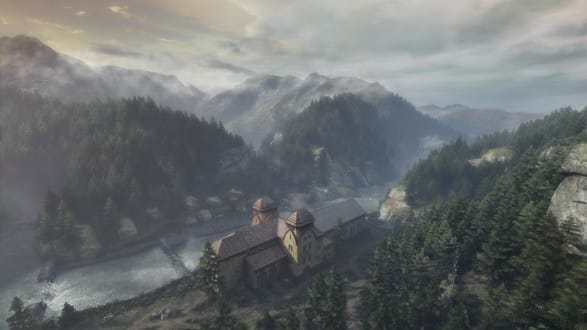
TR: Which steps do you think the industry need to take as a whole for games to be seen as a true art form?
Adrian: Step one, stop giving a fuck what others think. Jazz or blues did not become respected because jazzmen or bluesmen focused on gaining respect. It became respected because they focused on making great music that resonated with people.
Step two, better game writing would be nice, though.
TR: How do you think developers, especially indie developers, can improve writing in their games and stand out from the crowd? Is it simply a matter of practice or do you think there are steps that can be taken that will lead to a direct increase in quality?
Adrian: I think the most important thing for any developer is to understand their strengths and weaknesses and fix the weakness by putting the ego aside and reaching out to those that are better than you. For example, I think I can do decent plots and half-decent dialogue, but I know that only actual flesh and blood writers can do something worth the players’ time with it. So this is how we worked on The Vanishing of Ethan Carter: the core idea is mine, and I did a lot of set-ups and characters and placeholder dialogue with the input from the writers – Tom Bissell and Rob Auten – and then they took it, turned the dialogue into something actually good, murdered some of my ideas and replaced them with their own, and the end result was exactly what we all were hoping for.
There’s actually a healthy amount of writers on the market who do great job and understand games -- which is crucial, by the way, you can’t just work with someone who does not understand games. Anyway, so most of the time, if you like the writing in an indie game, you will find out that someone else but the lead designer helped to shape the story. There are exceptions, like Ken Gao (To the Moon) or Dave Gilbert (Blackwell series), who are excellent writers and can produce an amazing story on their own, but most often than not you should use the services of actual proven writers.
TR: What steps would you recommend to someone who wants to break into game development?
Adrian: I’m going to be a little harsh for a second, but people asking that question – and that is a lot of people indeed – need to learn how to Google. The answers are already out there, and these answers are written by actual game developers. And honestly this is exactly what studios like to see: that you don’t need to be babysitted. Most studios hire to get people that will allow them to compete with other studios and games, not to teach you how to make games.
Having said that, let me repeat a couple of tips.
Designers: most importantly, you need to impress. You need to prove you’re worth studio’s time. Sending a mail saying “I have this game idea and I have written a proposal”… Well, nobody cares. Studios are getting hundreds of these monthly and they’re all crap. It’s by default: if you had any idea what you’re doing you wouldn’t be sending emails like these, ergo, this is a waste of time. What you need to do is to make a mod that will blow everybody’s mind, make an indie game that wins awards or hearts, or sneak into game development through QA – once you put your foot into the studio, then if you’re any good you will be able to move to design sooner or later.
Programmers: everybody needs programmers, so just have something that proves you know how games programming differs from any other programming. Make a game, a mod, a piece of code that impresses.
Artists: just have a kick ass portfolio. It’s as simple as that. Show it to people before you show it to game developers, listen to critique, improve, and send a link to the studio only if you’re sure you can compete with the best.
Musicians and sound engineers: bad news, this going to be extremely tough for you. Even a small studio like ours gets tons of proposals monthly. You can still do it, though, if you’re smart about this. For example, very often we get a CV from someone who did some of the sounds for this or that game. But how can I tell which sounds? Why do you force me to Google the game in the first place? The same with musicians. It’s nice you have a track list on your website, but who has half an hour to go through and listen to your stuff, considering no one is that interested in the first place, as it’s very hard to find a studio which doesn’t know ten great available music artists already? So, as an example of how you can work around this, grab a trailer for a well-known game, or a gameplay fragment, and do your own music and/or sounds for it, send the link and say “This is a two minute example of what I can do.” I’d click on that.
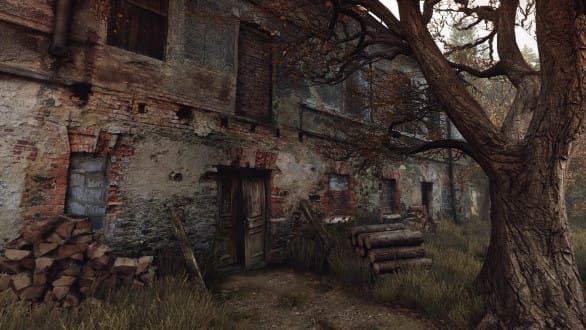
TR: What are your thoughts on Metacritic and do you think it has a net positive or negative effect on the industry?
Adrian: I’ve seen great 4.5/10 IMDB movies, and I fell asleep on some 9.2/10. The scores are fun to look at and I am certainly happy that Ethan got good scores, but the truth is that the average score does not tell me much about the product. Maybe if it’s universally 100% MC or 13% MC then it sends a certain message, but almost anything else is close to meaningless.
But to be perfectly honest, I did hear some good arguments for scoring and for aggregators. So my mind is not entirely made up on the subject yet. But I like how removing a score forces my lazy ass to actually read the damn review.
TR: Do you feel that isolating and focusing on a game's length is a fair, objective marker to use for judging a game's value?
Adrian: Of course not, paintings are usually not priced according to size, games should not be judged solely on their length. I mean, Pong is a game you can play forever for free, so pack it up guys, we’re done here, nothing left to do.
More seriously, sometimes a game being long is a problem. A tight, hi-octane AAA game can be six hours long and you will find a lot of people, especially those with families and very little free time, who will find this fact a plus, not a minus.
However, games are not made in a vacuum. I understand that if someone is tight on money, a great game that is fifty hours long is a better proposal for them than a great game that is six hours long. Well, actually you don’t need to be tight on money, you might just like being submerged in a particular world for dozens of hours. But still, in neither of these cases the length is objectively an issue that concerns everybody.
There’s way too much loud noise on the subject. I just had a guy tweet me that The Order: 1886 sucks, because he would never spend $60 on a movie. No, on Cthulhu’s tentacle, the game is the length of at least four average length movies, so in reality it’s $15 or less per movie. Better?
To be clear, I do think that the customer should be informed on what they’re getting themselves into. I wouldn’t mind the average start-to-finish playthrough time being a part of a game info box in a review, along with other data like rating, platform or replayability.
TR: Do you place more importance on press review scores or user scores for your games?
Adrian: I place the most importance on sales. After the initial week, during which a bad game may fool some people into purchase, every next week is either a confirmation you’ve done a good job or a message that that your game does not resonate with people or is plain bad. In other words, the tail of your game tells you the most about the world’s need for your product. I think the word of mouth along with individual hunger for certain type of entertainment trump anything else.
TR: How much do initial press impressions of a game affect it while it's still in development?
Adrian: Everything affects the development, be it the press or a play tester. Of course play testers affect it more, as they simply play the game earlier than the press. Honestly, the game needs to be good before you show it to the press, otherwise there’s no point, is there? And if the press does not like it, there’s probably not a lot you can do about it at this point, especially if you are an AAA developer. It makes me smile when I read a preview and there’s this “the game is still three months away from release, so hopefully they will fix this big thing”. No, they won’t. Three months from release minus production minus certification minus localization means the game is already in content and feature freeze mode.
It’s different for indies, though. I remember showing Ethan to PC Gamer and they didn’t like a certain thing and they were right and we scrapped it and came up with something much better. Which serves as a constant reminder than no matter how artsy or deep or innovative you think your game is and how protective you need to be of all those things, nothing beats a third party giving it a reality check.
TR: The Vanishing of Ethan Carter is a finalist for the IGF award for "Excellence in Audio". Do you place any particular emphasis on one aspect of a game during creation i.e. do you emphasize gameplay over story or sound design over art design?
Adrian: Our idea was always to go nuclear on every aspect of a game. Everything is important to us. Which is a mistake, because if you compare sales of various games you will see that graphics is not that important. We have a lot of average looking best-sellers, and not a lot of games that look amazing but sold well despite only half-decent gameplay. I mean, it’s obvious stuff. So you could argue that teams should really focus on gameplay and move everything else to the back seat. And you would be right, at least from the production and business point of view.
But it’s in our DNA to care about everything, so I guess we’ll just keep doing what we always do, and stick to the “no compromises” mantra. We want to be making great games that play great, look great and sound great. Of course, we’re totally unable to do that, as we’re, as I mentioned, an eight person team, but that’s the general direction we try to follow. If we ever wise up, I’m not sure.
Techraptor would like to thank Adrian for taking the time to answer our questions. You can find more from Adrian by following him on Twitter or visiting TheAstronauts.com. The Vanishing of Ethan Carter is currently available on PC and can be purchased from Steam or DRM free from GOG. Look for The Vanishing of Ethan Carter on PS4 later this year.
Have a tip, or want to point out something we missed? Leave a Comment or e-mail us at tips@techraptor.net
